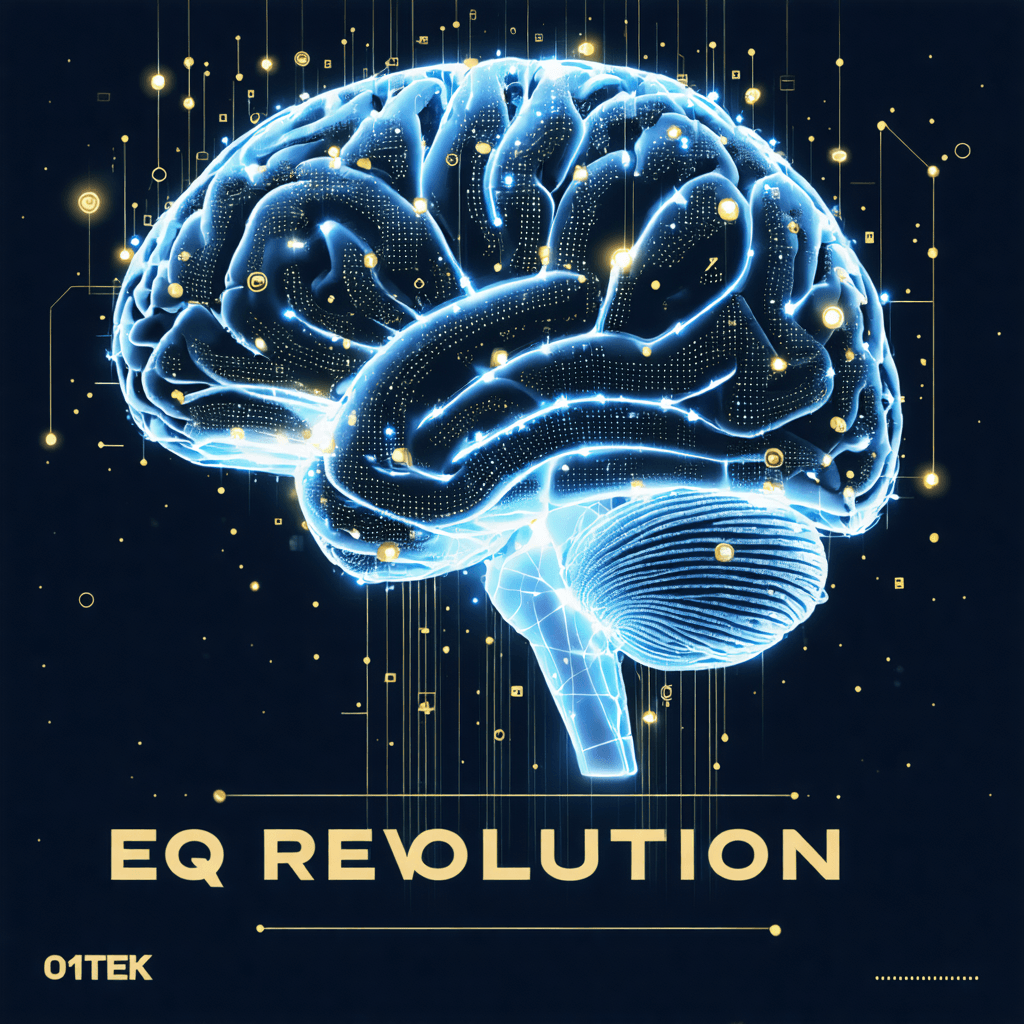The EQ Revolution: How Emotional Intelligence Is Reshaping Tomorrow's Workplace Success
In today's rapidly evolving business landscape, emotional intelligence (EQ) has emerged as a critical differentiator between good and exceptional leaders. As organizations navigate complex challenges and increasingly diverse workplaces, the ability to understand, manage, and effectively channel emotions has become just as crucial as technical expertise or traditional business acumen.
The Rising Importance of EQ in Modern Workplaces
The workplace of 2025 bears little resemblance to its counterpart from just a decade ago. Remote work, artificial intelligence, and cross-cultural teams have transformed how we collaborate and communicate. In this new environment, emotional intelligence isn't just a "soft skill" – it's a fundamental requirement for success.
Research from the World Economic Forum indicates that emotional intelligence ranks among the top ten skills employers seek, alongside problem-solving and critical thinking. Companies with emotionally intelligent leadership report 20% higher productivity rates and significantly lower turnover compared to those that don't prioritize EQ development.
Key Components of Emotional Intelligence
Self-Awareness
At the heart of emotional intelligence lies self-awareness – the ability to recognize and understand your own emotions, strengths, weaknesses, values, and motivations. Leaders with high self-awareness make better decisions because they understand how their emotional state influences their judgment.
Social Awareness
This component involves recognizing and responding to others' emotions and needs. It includes empathy, organizational awareness, and the ability to read social dynamics accurately. In today's global workplace, social awareness helps leaders navigate cultural differences and build inclusive environments.
Relationship Management
The ability to build and maintain positive relationships is crucial in modern workplaces. This includes skills like influence, conflict management, and the ability to inspire and develop others. Leaders with strong relationship management skills create more engaged and collaborative teams.
The Impact of EQ on Workplace Success
Enhanced Team Performance
Teams led by emotionally intelligent managers show:
- 67% higher levels of engagement
- 40% lower turnover rates
- Improved problem-solving capabilities
- Better adaptation to change
Better Decision-Making
Emotional intelligence enables leaders to:
- Consider multiple perspectives
- Manage stress effectively
- Make more balanced decisions
- Navigate complex stakeholder relationships
Improved Communication
High-EQ individuals excel at:
- Active listening
- Clear and empathetic communication
- Giving and receiving feedback
- Managing difficult conversations
Developing Emotional Intelligence in the Workplace
Assessment and Self-Reflection
The journey to improving emotional intelligence begins with honest self-assessment. Regular reflection on emotional responses, behavior patterns, and interaction styles provides valuable insights for growth.
Practical Strategies for Enhancement
- Practice Mindfulness: Regular mindfulness exercises help develop emotional awareness and control.
- Seek Feedback: Actively request input from colleagues and mentors about your emotional impact.
- Keep an Emotion Journal: Document emotional triggers and responses to identify patterns.
- Develop Active Listening Skills: Focus on understanding others' perspectives without immediate judgment.
Creating an EQ-Centric Culture
Organizations can foster emotional intelligence by:
- Incorporating EQ assessments in hiring processes
- Providing emotional intelligence training programs
- Recognizing and rewarding emotionally intelligent behaviors
- Creating psychological safety in teams
The Future of EQ in the Workplace
As we look ahead, emotional intelligence will become even more crucial. The integration of AI and automation means that distinctly human skills – empathy, emotional understanding, and interpersonal relationships – will be increasingly valuable.
Emerging Trends
- Virtual EQ training programs using VR and AI
- Enhanced focus on mental health and emotional well-being
- Integration of EQ metrics in performance evaluations
- Personalized EQ development plans
Measuring ROI of Emotional Intelligence
Organizations investing in EQ development report:
- 34% increase in project completion rates
- 23% improvement in customer satisfaction
- 58% reduction in conflict-related productivity losses
- Higher employee retention rates
Building Tomorrow's Leaders Today
The workplace of tomorrow demands leaders who can navigate both technical and emotional landscapes with equal expertise. Organizations that prioritize emotional intelligence development today are positioning themselves for sustainable success in an increasingly complex business environment.
The Role of Continuous Learning
Emotional intelligence isn't a fixed trait – it can be developed and enhanced through dedicated practice and learning. Like any skill, it requires ongoing commitment and regular refinement to maintain effectiveness.
Practical Steps for Implementation
- Begin with leadership buy-in and commitment
- Implement structured EQ assessment programs
- Develop customized training initiatives
- Create accountability systems
- Measure and track progress
- Adjust strategies based on outcomes
Ready to transform your workplace with enhanced emotional intelligence? Start your EQ development journey with 01TEK's comprehensive range of emotional intelligence courses and resources. Our expert-led programs are designed to help individuals and organizations build the emotional intelligence capabilities needed for tomorrow's workplace success.
Visit 01TEK today to explore our cutting-edge EQ development programs and take the first step toward building a more emotionally intelligent workplace. Don't just adapt to the future – shape it with enhanced emotional intelligence.
Sources: 1. World Economic Forum Skills Report 2. Harvard Business Review - EQ Research 3. Society for Human Resource Management
I treat business a bit like a computer game. I count money as points. I’m doing really well: making lots of money and lots of points.
Michael Dunlop



